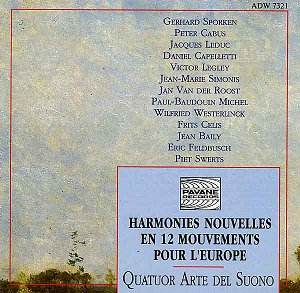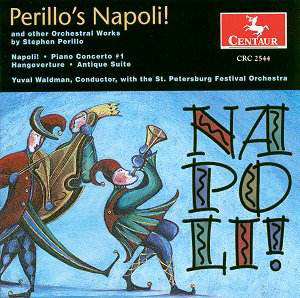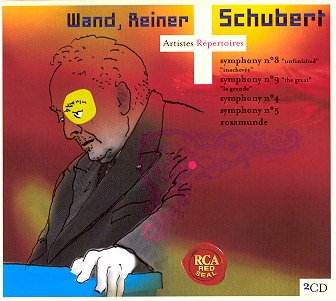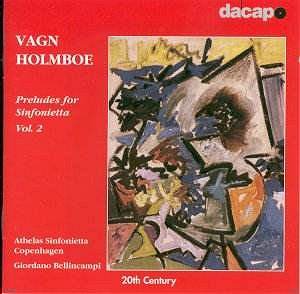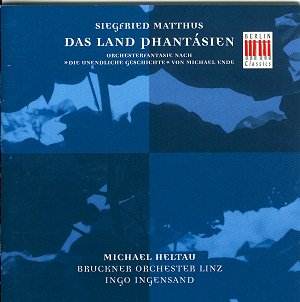 Composer: Siegfried Matthus
Composer: Siegfried Matthus
Works: Das Land Phantásien
Performers: Michael Heltau (narrator), Bruckner Orchester Linz, Ingo Ingensand
Recording: Brucknerhaus, Linz, December 2000
Label: Berlin Classics 0017412
Siegfried Matthus, born in 1934, stands as a pivotal figure in contemporary classical music, where his output often engages with narrative and theatrical elements. His work Das Land Phantásien, composed in 1995, presents an orchestral fantasy based on Michael Ende’s beloved children’s novel, The NeverEnding Story. This piece is not merely an adaptation; rather, it serves as an exploratory venture into the realms of fantasy through a rich orchestral palette and spoken narration. Matthus’s approach aligns with the tradition of narrative-driven compositions, akin to those by Poulenc and Prokofiev, yet retains a distinct voice that speaks to both young and mature audiences alike.
The performance by the Bruckner Orchester Linz under Ingo Ingensand is notable for its vibrant and nuanced interpretation. Michael Heltau’s narration, delivered in German, provides an engaging bridge between the audience and the orchestral landscape. Heltau’s voice possesses a lyrical quality, adeptly capturing the whimsical essence of the story while allowing the orchestral commentary to breathe. The orchestra responds with a palette that is both colorful and dynamic, encapsulating the various moods of the narrative. Matthus’s orchestration is particularly effective; the strings shimmer with a delicate lightness during moments of fantasy, while brass and woodwinds evoke a sense of grandeur and adventure. The thematic material, though fragmentary at times, recurs throughout the piece, providing cohesion and allowing listeners to grasp the overarching narrative arc.
From a technical standpoint, the recording quality is commendable, with a clear balance between the narration and the orchestral sound. The Brucknerhaus in Linz provides an acoustically rich environment that enhances the warmth of the strings and the clarity of the winds. This clarity is crucial for such a work, as it allows the listener to appreciate the intricate tapestry of motifs that Matthus weaves throughout the score. The engineering captures the depth of the orchestral sound while ensuring that the narration remains prominent without being overpowering.
While Das Land Phantásien may not have yet achieved the widespread recognition of its predecessors like Peter and the Wolf or The Snowman, it possesses a charm that could easily appeal to a younger demographic. Its structure and musical language offer a gateway into contemporary classical music, making it a suitable candidate for educational purposes as well as family concerts. The absence of an English narration is a missed opportunity, as it could further broaden its reach. Nevertheless, this recording stands as a testament to Matthus’s ability to engage audiences through music that is both intellectually stimulating and entertaining.
Das Land Phantásien is, without doubt, a significant contribution to the canon of orchestral storytelling. Matthus has created a work that is not only accessible but rich in musical invention, capable of enchanting listeners of all ages. The recording by Ingo Ingensand and the Bruckner Orchester Linz captures this spirit effectively, offering a performance that resonates with both clarity and emotional depth. The potential for this piece to become a staple in the repertoire for young audiences is clear, and I anticipate that its charm will lead to greater recognition in the years to come.
